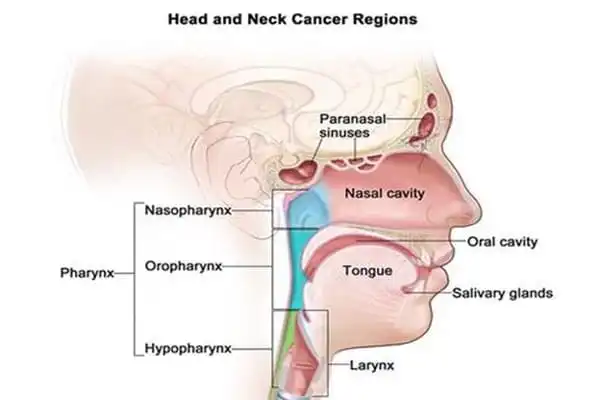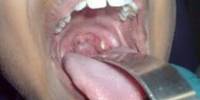Many head and neck cancers are curable, especially if detected early. Although the major goal of treatment is to eliminate cancer, it is equally critical to preserve the function of adjacent nerves, organs, and tissues. When planning treatment, doctors examine how treatment may affect a person’s quality of life, such as how a person feels, looks, talks, eats, and breathes.
The present standard of care for patients with advanced or metastatic head and neck cancer (HNC) is ineffective. Researchers from Ben-Gurion University of the Negev and their international colleagues examined and validated a prospective therapeutic combination against the aggressive disease caused by hyper-activation of a specific signaling pathway, which is prevalent in more than 40% of HNC patients. Their findings were reported in the Journal of Cancer Immunotherapy.
The behavior of a certain head and neck cancer is determined by where it develops (the primary site). Cancers that begin in the vocal cords, for example, behave considerably differently than those that develop in the back of the tongue, which is only an inch or less away from the vocal cords.
Squamous cell carcinoma is the most frequent type of cancer in the head and neck, and it develops from the cells that line the inside of the nose, mouth, and throat. A history of smoking or exposure to the human papillomavirus is frequently related with squamous cell carcinoma (HPV). Salivary gland tumors, lymphomas, and sarcomas are some of the less prevalent kinds of head and neck malignancies. Preventive measures include avoiding alcohol and cigarette products, as well as immunizing children and young people against HPV.
Our unrivaled capacity to generate pre-clinical HNC models and research potential treatments and treatment combinations gives HNC sufferers hope. We truly hope that doctors will put this treatment combination to the test in HNC patients, because enhancing immunotherapy efficacy is critical for cancer patients’ survival.
Prof. Elkabets.
The scientists demonstrated in pre-clinical HNC models that treating tumor-bearing mice with a medication that disrupts this signaling pathway sensitizes tumors to anti-PD1 immunotherapy, resulting in tumor elimination after the therapy combination. This successful treatment was verified in four HNC cancer models, and the majority of mice were cured with no relapse. The scientists, in collaboration with Dr. Pierre Saintygn of Lyon, also verified some of the findings in HNC patients.
Manu Prasad, a Ph.D. student at Ben-Gurion University of the Negev, led the research in Prof. Moshe Elkabets’ laboratory in the Faculty of Health Sciences.
“Our unrivaled capacity to generate pre-clinical HNC models and research potential treatments and treatment combinations gives HNC sufferers hope. We truly hope that doctors will put this treatment combination to the test in HNC patients, because enhancing immunotherapy efficacy is critical for cancer patients’ survival” Prof. Elkabets.

The scientists also demonstrated, for the first time in mice with HNC, that the therapy should be administered consecutively. They discovered that a brief trametinib treatment is sufficient to sensitize anti-PD-1 resistant tumors. Trametinib treatment, on the one hand, decreases tumor cell proliferation and, on the other, down-regulates the production of an immunosuppressive factor that dictates the propagation of immunosuppressive cells in the tumor site. This effect allows cytotoxic white blood cells to reach the tumor site and, when combined with anti-PD1, effectively kill tumor cells. Tumors in mice treated with trametinib for an extended period of time, on the other hand, did not react to immunotherapy.
The three main treatments for head and neck cancer are radiation therapy, surgery, and chemotherapy. The principal treatments are often radiation therapy, surgery, or both combined, with the goal of destroying or eliminating the malignancy. Chemotherapy is frequently used as a supplement, or adjuvant, treatment. The best mix of the three treatment options for a patient with a certain head and neck cancer is determined by the location of the tumour and the stage (amount of disease).
In general, individuals with early-stage head and neck malignancies (especially those localized to the site of origin) are treated with either radiation therapy or surgery as their primary therapy. Patients with more advanced malignancies are frequently treated with a combination of chemotherapy and radiation therapy. Patients are sometimes treated with surgery, followed by radiation therapy and chemotherapy, depending on the clinical circumstances.
The research was carried out by national and international teams from Soroka University Medical Center, Barzilai Medical Center, Memorial Sloan Kettering Cancer Center, and Heidelberg Hospital.
















